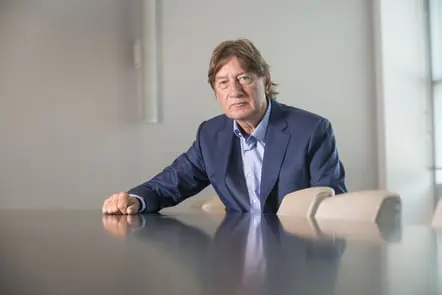Economische veiligheid is volgens de Nationale en Internationale Veiligheidsstrategieën van de regering een vitaal nationaal belang. Hoe terecht dat is, blijkt uit de aanhoudende disputen tussen China met Vietnam en de Filipijnen over de zeggenschap van eilanden in de olie- en gasrijke Zuid-Chinese zee, uit de controverse met Rusland over de Southstream Pijpleiding in Zuid-Europa en indirect uit de annexatie van de Krim.
Slechts zijdelings kwam de energieproblematiek tijdens deze annexatie aan de orde. Maar inmiddels begint duidelijk te worden dat Rusland zijn Exclusieve Economische Zone in de Zwarte Zee flink heeft uitgebreid, waardoor het Kremlin zeggenschap krijgt over de daar aanwezige olie- en gasreserves van Oekraïne. En dit zijn slechts de meest recente voorbeelden van conflicten waar energie een rol speelt.
Vooral de Oekraïne-crisis heeft de politiek nu in beweging gezet. Een katalysator daarbij was het HCSS-rapport No blood for oil dat de relatie legt tussen energieveiligheid en de inzet van de krijgsmacht. Mede naar aanleiding van dit rapport stelde het Kabinet een werkgroep economische veiligheid in onder leiding van de Nationaal Coördinator Terrorismebestrijding en Veiligheid (NCTV), schreef de minister van Defensie. Het rapport gaat in op de kwetsbaarheid van Arabische energieproducenten als Algerije en Nigeria en van zeestraten als de Straat van Hormus en de Straat van Malakka. Ook wordt geconstateerd dat de schalierevolutie de Amerikanen in staat stelt zich selectiever met de crises in de wereld bezig te houden en de Europeanen te dwingen meer verantwoordelijkheid voor hun eigen veiligheid te nemen. Bovendien zullen de Amerikanen hun LNG-exporten als politiek middel gaan inzetten, bijvoorbeeld om landen die minder afhankelijk van Russisch gas willen worden, te steunen. Kortom, energie en veiligheid raken elkaar.
Uiteraard is het mooi dat er nu vaart in de discussie zit. Politici zijn Kamerbreed tot de conclusie gekomen dat om geopolitieke redenen de afhankelijkheid van buitenlandse energie moet worden beperkt. Tegelijkertijd lekte een eerste evaluatie van het in 2013 gesloten Energieakkoord naar Trouw uit. De conclusie? De doelstelling om in 2020 14 procent duurzame energie te hebben zal vermoedelijk niet worden gehaald. Daarmee bevestigt Nederland zijn positie als hekkensluiter op het gebied van duurzaamheid en zakt het onder het niveau dat de EU acceptabel vindt.
Is hier het typisch Nederlandse verschijnsel aan de orde dat wij al polderend best tot een breed gedragen oplossing kunnen komen, maar ons minder druk maken om de implementatie ervan? Zeker is dat maatschappelijke oppositie tegen windmolens op het land en trage besluitvormingsprocedures niet bevorderlijk voor de verduurzaming zijn. Voorts zouden er onvoldoende harde afspraken met vervuilende bedrijven zijn gemaakt zodat die nauwelijks in actie hoeven te komen.
Deze patstelling moet worden doorbroken. Vooral omdat het geopolitieke argument van de economische veiligheid met de dag aan kracht wint. Dit argument dwingt ons onze energievoorziening nog kritischer te bekijken en maatregelen te nemen zonder dat ons concurrentievermogen wordt aangetast en onze positie in de wereld verder verzwakt.
Rob de Wijk is directeur van het The Hague Centre for Strategic Studies (HCSS) en professor Internationale Betrekkingen aan de Universiteit Leiden


